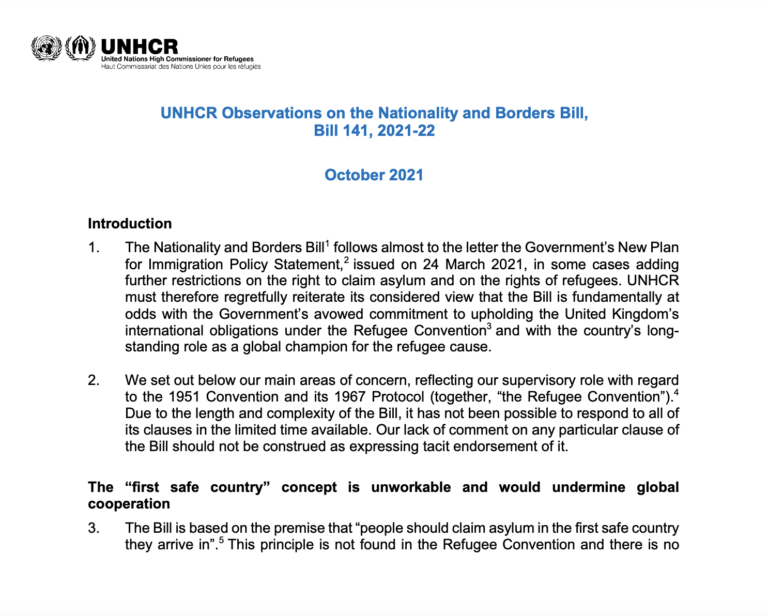The Nationality and Borders Bill follows almost to the letter the Government’s New Plan for Immigration Policy Statement, issued on 24 March 2021, in some cases adding further restrictions on the right to claim asylum and on the rights of refugees. UNHCR must therefore regretfully reiterate its considered view that the Bill is fundamentally at odds with the Government’s avowed commitment to upholding the United Kingdom’s international obligations under the Refugee Convention and with the country’s longstanding role as a global champion for the refugee cause.
The authors set out below their main areas of concern, reflecting their supervisory role with regard to the 1951 Convention and its 1967 Protocol (together, “the Refugee Convention”). Due to the length and complexity of the Bill, it has not been possible to respond to all of its clauses in the limited time available. The author’s lack of comment on any particular clause of the Bill should not be construed as expressing tacit endorsement of it.

